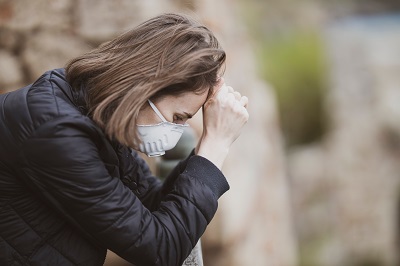How to Deal with Your COVID-19 Stress, Anxiety & OCD
How to Deal with Your COVID-19 Stress, Anxiety & OCD

If you engage in some positive distracting activities during this crisis, then the flow of the day will move like a steady stream rather than a slow drip.
Time might seem to go by slowly and you only measure your day by the time between newscasts.
Do not just stay glued to the tv related to the pandemic.
Look up a new recipe and try to cook it. Get creative with what you have in the pantry.
Watch an entertaining show you haven’t had the time to get into.
Read. Write. Paint.
Keep a schedule
It is easy to lose track of time and stay in bed longer than usual, especially if you are not actually showing up for work because of a lockdown.
Get up anyway. Eat breakfast, lunch and dinner. Get out of pajamas, shower, and put on your day clothes.
The brain likes routine, but if you move into a routine that is unhealthy, the brain will react and might get stuck in that low stimulus environment.
Get outside
Cabin fever can set in, and you cannot take a temperature to gage this type of fever.
It typically shows itself by irritability.
Go for a walk in your neighborhood if weather permits. This is safe to do. The human brain needs stimulation and needs to see the sunlight in order to maintain a healthy circadian rhythm of the sleep-awake cycle.
This also is a healthy distraction. When you walk, take notice of some things that you might have not noticed before you had to take a pause in your usual day. See the leaves on the trees!
Stay in touch
Coronavirus is a biological virus, not a computer virus. Our phones are working.
Reach out to people; hear their voice. Use video messaging, like Skype or FaceTime. Technological advances can allow us to maintain human contact even if we cannot physically be with our friends or family.
Remind yourself you are not alone.
Exercise
This can be done if you go for a nice brisk walk outside or doing yoga in your family room.
There are tons of online programs for at-home exercise. Now is a time as good as any to find an app or website you like. This will keep you not only physically health by preventing staying sedentary, it will keep you mentally healthy.
Exercise helps you sleep and helps to keep up your energy reserves.
Laugh
There are dozens and dozens of memes floating around out there that take good advantage of a healthy defense mechanism, humor.
Finding the funny is perfectly normal and encouraged.
It is not minimizing the severity of this pandemic as you still take the necessary precautions, but rather, it is giving your brain a break from the heaviness of the worry.
Limit checking your phone
If you allow constant notifications and updates related to COVID-19, you will never get a break.
As part of your schedule you will keep, only allow yourself a certain amount of time to check news sites and social media or even to discuss the current situation with others.
Don’t worry, you will stay current on vital information; you won’t miss anything.
Setting this type of boundary with yourself has been proven to help minimize stress levels.
Enjoy the time with your immediate family
If you have school-aged children like I do, and now find yourself an un-volunteered stay-at-home parent homeschooling your child.
You might actually be finding yourself wishing at times you are home alone.
Give yourself permission for “me time” but also look at this as glass half-full. You have an opportunity to make some valuable memories with your children in a time of dire straits.
Play board games, card games, charades, sing songs on Alexa together, look at old photos together.
Make lemonade together, literally and figuratively.
Final Thoughts
As a result of this pandemic, it is possible that our prior social norms might change indefinitely. Shaking hands or hugging as a form of greeting might not remain, though I hope not.
As a psychiatrist, I feel that meeting face to face with my patients makes a huge difference in developing trust and rapport. Telepsychiatry might become the standard way of practicing psychiatry, though I hope not.
I am glad that we are adaptable creatures and can shift to behaviors that ensure our safety. I am also glad that we are empathetic creatures that feel the importance of protecting others.
The truth is that we as a human race have been through troubling, difficult and distressing times all throughout history.
The one thing we know to consistently be true is that our drive to live, our ability to learn and our creative spirit will allow us not only to survive this virus, but to be even wiser and stronger for having gone through it. That is not a consolation prize, that is a real result of adversity.












